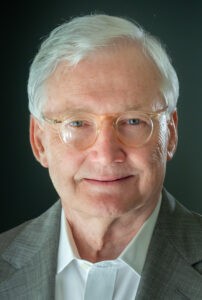It seems alarming to many that the social fabric of our nation is tearing. The social compact that knits us together in mutual regard is more than frayed. Is there a common good that is worthy of the Christian’s attention — and the church’s vocation?
Our regard for public health was dealt a blow during the pandemic when the urgings of the Centers for Disease Control to control the spread of COVID was ignored and in some places ridiculed. To be or not to be vaccinated was considered an individual matter alone, with little or no regard for the welfare of others. Or it became a political rallying point for politicians who delayed the introduction of vaccines to make political points. Trust in the findings of science were disregarded, especially among some Christian groups.

Stephen Shoemaker
The undermining of public health has only grown since then.
And what about public schools? There has been a concerted effort to undermine both confidence in and funding for our public schools. The funding of private schools has been dramatically increased through government-funded vouchers for private education. Some Christians want to starve public education; others want to conquer it in Jesus’ name. School board meetings have become battle grounds.
Does God want us to be concerned about the health of the public sphere of life? And how much? The prophet Jeremiah sent this word to the Hebrew people captured in Babylonian exile, where they lived for about 70 years. Jeremiah sent this word from the Lord: “Seek the welfare of the city where I have sent you into exile, and pray to the Lord on its behalf, for in its welfare you will find your welfare.”
We are talking about Babylon here, the enemy nation and its city! Seek its welfare? Pray for it?
There are Christians who feel America today is a Babylon in which they live, and they have little interest in seeking its welfare, except as some believe, it must be taken over for Jesus’ sake — the goal of Christian dominionism. Too many Christians think they live in a “no duty zone.” How quaint that word “duty” sounds today.
The esteemed church historian Martin Marty has promoted the study of what he calls “public church” in America. He writes: “The public church is a family of apostolic churches with Jesus Christ at the center, churches which are especially sensitive to the res publica, the public order that surrounds and includes people of faith.”
The public church, he writes, keeps central “saving faith,” the gospel of reconciliation with God in Christ, but sees itself called also to “ordering faith” which seeks the welfare of the civic, social and political life of the community and nation. It combines, to use Marty’s words, “religious commitment with civility, spiritual passion with public sense.”
It is opposite from what Bill Moyers has called “political religion,” which uses religion as “an instrument of political combat.”
Public church is committed to the common good, which includes all people in our pluralistic nation. We are all “members of one another,” to use the words of the Apostle Paul.
So may we be about the repair of our social fabric, stitch by tiny stitch. That is our calling too.
Stephen Shoemaker serves as pastor of Grace Baptist Church in Statesville, N.C. He served previously as pastor of Myers Park Baptist in Charlotte, N.C.; Broadway Baptist in Fort Worth, Texas, and Crescent Hill Baptist in Louisville, Ky.


